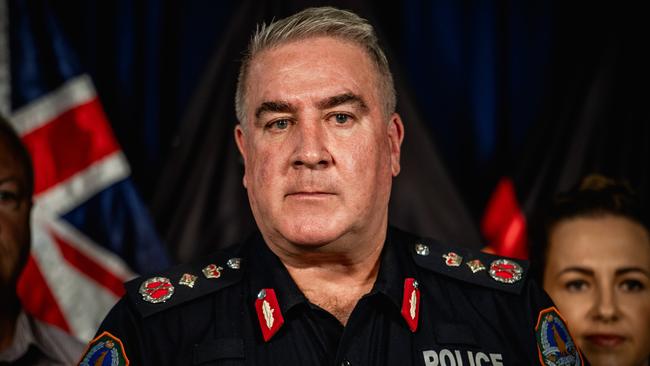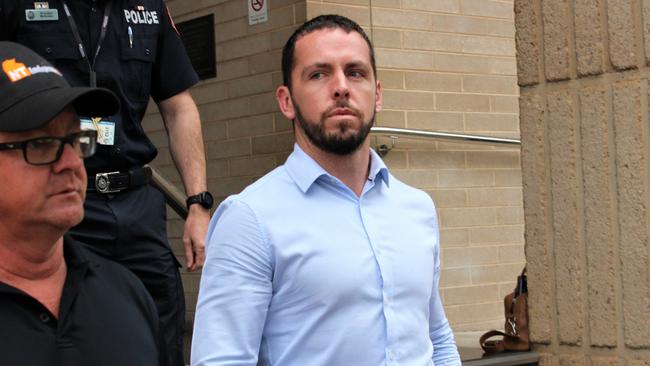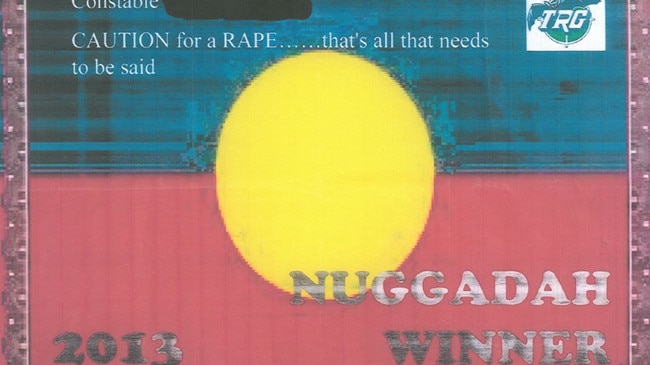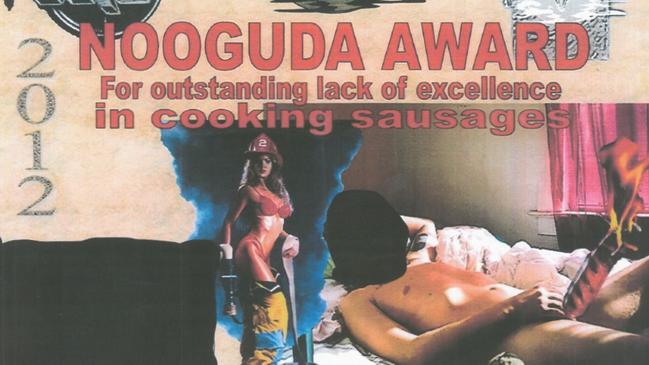NT ICAC investigation into police racism finds ‘no admissible evidence’ despite ‘evidently racist’ awards
An investigation into racism in NT police has found ‘no admissible evidence’ five officers lied to the court, despite concluding ‘any person of reasonable intelligence’ would see evident racism in a series of historical awards.

Police & Courts
Don't miss out on the headlines from Police & Courts. Followed categories will be added to My News.
An investigation into racism in the Northern Territory Police Force has found “no admissible evidence” five officers lied to the court, despite concluding “any person of reasonable intelligence” would see evident racism in a series of informal awards for “c--n of the year”.
In its final report, released on Thursday, the Office of the Independent Commissioner Against Corruption said it did not have the resources to conduct any further wide-ranging investigation.
Patricia Kelly SC – the person leading the investigation while ICAC Michael Riches remains on indefinite leave – said despite making no recommendations or prosecutions, the investigation had largely fulfilled one of its objectives by highlighting historical evidence of racism within the elite Territory Response Group (TRG) police unit.

The allegations of racism emerged in February during evidence by former NT Constable Zach Rolfe at an inquest into the death of Kumanjayi Walker.
Mr Rolfe – who has been cleared of any wrongdoing in relation to Kumanjayi’s death – told the coroner the TRG bestowed racist mock awards on members who displayed the most “Aboriginal-like behaviour”, commonly referred to as “c--n of the year” and “Nugedah” awards.
Five NT police officers gave sworn statements to the court denying Mr Rolfe’s allegations, instead contending the Nugedah award was given for poor hygiene, and was not related to race.
Mr Rolfe then produced three certificates allegedly awarded to TRG members in 2012 and 2013 – including one printed on an Aboriginal flag.


The ICAC and NT Police launched a joint investigation into the awards, and to determine whether the five senior officers had lied to the court in their affidavits.
A sweep of police computers uncovered two more awards from 2007; one “for expressing your utmost level of Aboriginality” over a picture of a man passed out with beer cans around him.

In the ICAC report, Ms Kelly said a number of current and former officers provided evidence, however the anonymity promised to anyone who came forward meant she did not pass on their declarations to police or the Director of Public Prosecutions.
In September the DPP advised there was not enough evidence to charge any of the five officers who denied Mr Rolfe’s allegations – a decision Ms Kelly described as “reasonable if not inevitable”.
Nonetheless, she noted, some evidence gathered “tended to contradict” the five officers’ statements, and some of the certificates are “evidently on their face racist”.
“It is difficult to conclude how any person of reasonable intelligence could conclude otherwise,” Ms Kelly said.
She noted there was no evidence of any racist material produced after 2015, and concluded institutional cultural reform should take priority over individual prosecutions.
Chief Minister Lia Finocchiaro welcomed the end of the ICAC investigation, saying it closed “a chapter which has caused great stress and destabilisation in our police force”.
She criticised police being put “under higher and higher levels of scrutiny for seemingly no reason”.
“(The ICAC investigation) resulted in what we’ve always said, and that is that there is not systemic racism in our police force,” Mrs Finocchiaro said.
In a statement, Police Commissioner Michael Murphy said the Northern Territory Police Force had made and would continue to make significant strides in driving institutional change.
“We are committed to creating and delivering on a culture of safety, integrity, accountability, and professionalism. There is no place for racism or discrimination within our ranks,” he said.





